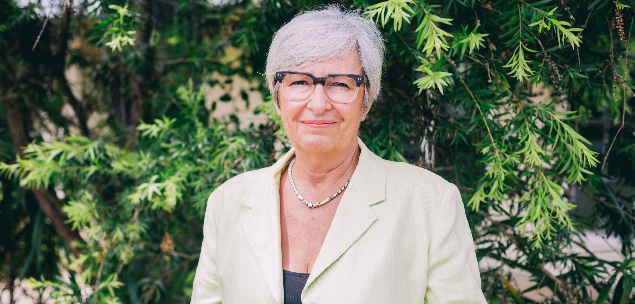Employers who equate mentor-mentee relationships with a quick coffee catch-up risk missing out on the huge financial gains of having a structured mentoring program, according to Melissa Richardson, the Managing Director of Art of Mentoring.
The mentoring program design and implementation business was spun out of Horizons Unlimited, a mentoring consultancy where Richardson is a director and consultant. She told Dynamic Business that she has channelled more than 20 years of experience in the coaching and mentoring field into helping dozens of public and private sector organisations implement effective, best-practice mentoring programs. She considers Art of Mentoring’s new online platform to be the culmination of her work to date.
The platform was launched last month to allow organisations of all sizes to design and execute tailored, evidenced-based mentoring programs, and Richardson counts Toyota Financial Services, NRMA, Wesfarmers and the Australian Human Resources Institute (AHRI) amongst the early adopters.
Designed by mentoring experts in collaboration with software engineers and UX/UI designers, the platform provides program coordinators with access to online training as well as a library of mentoring resources. In addition, Richardson said it uses a sophisticated algorithm to connect mentors and mentees. To date, it has already successfully matched over 2,500 mentors to mentees, with the aim being to achieve 10,000 matches by June.
“Our new platform is suitable for organisations that want to improve the quality and effectiveness of mentoring relationships between their employees,” she said. “It is also suitable for organisations that want to build the leadership capacity of their managers, by giving them essential coaching and mentoring skills.”
Richardson said studies show that effective mentoring programs help transform company culture, improve employee confidence and self-esteem, increase leadership capabilities, contribute to working relationship effectiveness and improve employee retention rates.
“A study by Sun Microsystems found that mentees – when compared to individuals who received no mentoring – were 25% more likely to experience salary increases and, on average, enjoyed five times more promotions,” she said. “Further, one of the programs Toyota ran with us, focusing on women, resulted in a 50% promotion rate for the mentees involved.
“Meanwhile, there is evidence that mentors enjoy greater job satisfaction and may even experience a rejuvenation in their own career as a result of helping someone else explore theirs. These sorts of benefits are often considered ‘soft’, but it stands to reason that staff who are engaged, motivated, confident and well supported move more quickly and are better able to weather internal and external disruption.
“In terms of the benefits for employers, these include lower staff turnover rates and a more engaged and productive workplace. Overall, the return on investment in a well-designed mentoring program is estimated to be about 500%. In fact, Sun Microsystems estimate an estimate an ROI of more than 1000%, including $6.7 million in savings due to the avoidance of turnover and replacement costs. We walk our talk in our business and expect all our people to have at least one mentoring relationship.
Richardson said mentoring, for all its benefits, is still misunderstood by some businesses in Australia, and that programs are not always effectively designed and implemented.
“There is a common misconception that coffee catch-ups or connecting with people on LinkedIn and asking them questions is considered ‘mentoring’,” she said. “This is incorrect. We consider this type of relationship to be a transfer of knowledge or fast knowledge transfer. Real mentoring is centred on developing relationships over time and not just a speedy transaction of knowledge. The mentor-mentee relationship is a long-term journey and involves a mentor investing their time and energy into the development of someone who is less experienced.
“Common mistakes organisations make include launching a mentoring program that has not been well-thought through and designed. For instance, putting profiles on the company intranet and expecting people to ‘self-serve’, i.e. set up relationships without guidance, is usually a waste of time. Another mistake is launching a program that is under-resourced – in other words, a program where mentors and mentees are not supported by educational resources and a program manager who can troubleshoot problems.”
“Of course, for any mentoring relationship to be effective, the mentor and mentee need to have aligned expectations about how to behave and manage the relationship. Mutual respect is critical. The mentor needs at least a base level of mentoring skill and the mentee needs to be enthusiastic and engaged in the process.”
Asked how mentoring has benefitted her personally, Richardson explained: “I had mentors as early in my life as primary school. There is nothing more transformational than having someone believe in you and shine a light on the talents you didn’t realise you had. My first employer became a career mentor for me in my early 20s and we stayed connected over many years. Even today, I have trusted colleagues who I regard as peer mentors. They have helped me through major decisions and have exposed my blind spots.”

